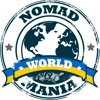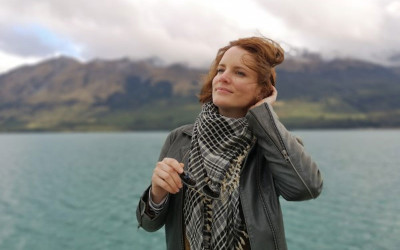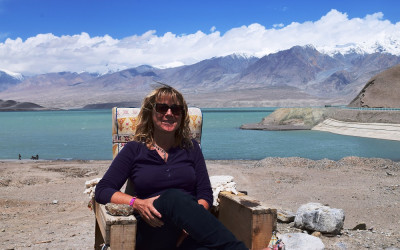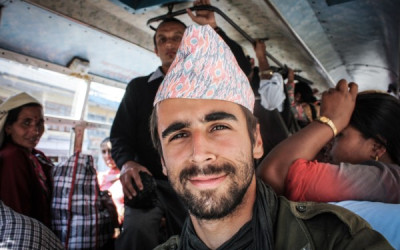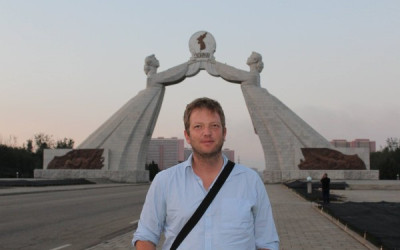Today we are delighted to present an interview with a highly esteemed traveller. You can read more about Richard and his career in the wikipedia entry about him.
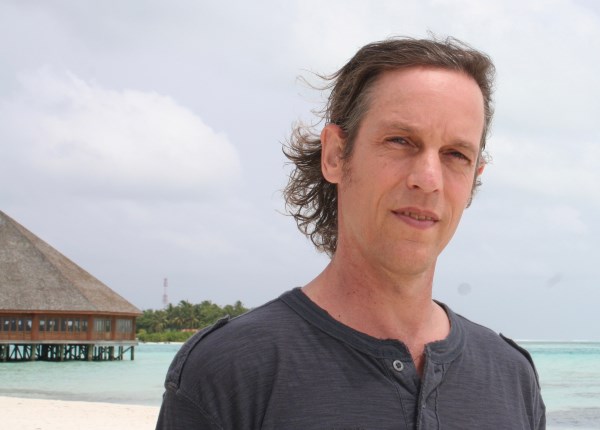
Richard in the Maldives
Richard, tell us a little about your background and how your interest in travel developed.
I grew up in a rather culturally homogeneous suburb in the American Midwest. My parents were world travelers but always left my sister and me at home, except for road trips within the US. As a child I felt much the way Milan Kundera describes in his novel Life is Elsewhere. My first trip abroad – apart from Canada – was as a sixteen-year-old when my parents sent me to stay with some friends in Switzerland. I saw that as the escape I had been waiting for, and never looked back.
You are a specialist in Iran. What makes this culture especially intriguing for you?
I have been a student of Iranian civilization for about thirty years now. Even as a child I was a bit of a contrarian – growing up in during the Cold War I was fascinated by the Soviet Union, and studied Russian in high school when everyone else was doing French and Spanish. I visited the USSR twice before its demise, once with a student group and once with a gang of drunken Finns. Now it seems Iran has somehow inherited the mantle of “most misunderstood country.” Of course among travelers who have been there it has a reputation for unrivalled hospitality, and this is deserved, in my opinion. But also historically Iran has been one of the most important contributors to world civilization, a fact I have tried to highlight in my books. They have an awful government, but that is true of a lot of countries who don’t get nearly so much bad press.
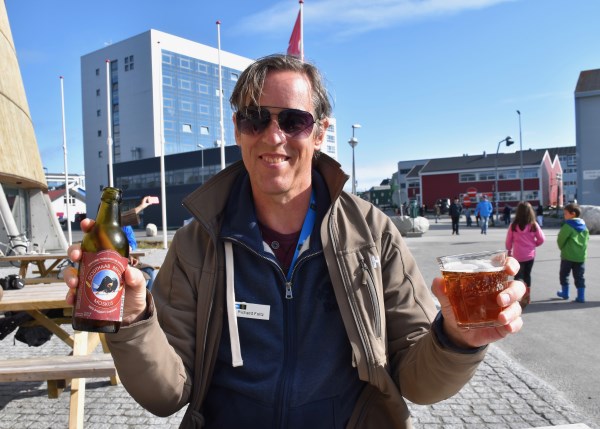
Nuuk, Greenland
Given your long involvement with Iran, tell us a few experiences you have had there which have really made their mark
I speak Persian and am married to an Iranian, so it is more a second home to me than a tourist destination. But I have always been impressed by the respect and generosity Iranians at all levels of society have shown me over the years. Not long ago when going through customs at the airport in Tehran I was having a very friendly chat with the immigration official responsible for stamping my passport; after endless compliments and words of welcome, he said well, I guess we’re supposed to take your fingerprints since the Americans started doing that to us so hang on while I call someone to come and get you. Then he thought better of it and said, nah, never mind, just go on through and enjoy your stay. I have accompanied Iranian family members across the US-Canada border and I can tell you such a relaxed scene would be impossible there.
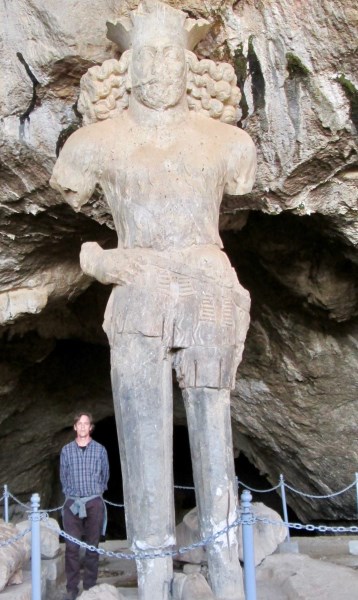
Bishapur, Iran
And give us a few ‘gems’ of the country that most travellers won’t know of
A couple of years ago I was doing some research on Kurdish sects and went to visit the areas in Kermanshah province along the Iraqi border where the Ahl-e Haqq live. They are a non-Muslim sect of about a million people whose religion consists entirely of sitting around playing music. They officially pretend to be Shi‘ite and the government mostly leaves them alone, but they are understandably secretive so I don’t know how much a traveller could glean from them unless accompanied by a local who was a member of the sect.
We also very much enjoyed spending time with the Zoroastrians of Yazd a few years ago. The Zoroastrian shrines around the region – Pir-e Sabz or Pir-e Hrisht, for example – are fascinating places to visit. As a recognized religious community the Zoroastrians are not subject to Islamic laws, at least in private, and they are quite insistent about offering you alcohol, inviting you to mixed dances, etc. We visited a gym that wouldn’t have been out of place in LA: men and women working out side-by-side, dressed in skimpy workout clothes and sweating up a storm. Anyone who visits Yazd should try to stay in the Moshir ol-Mamalek hotel; it is a converted governor’s mansion, a real treasure of 19th century Iranian architecture.
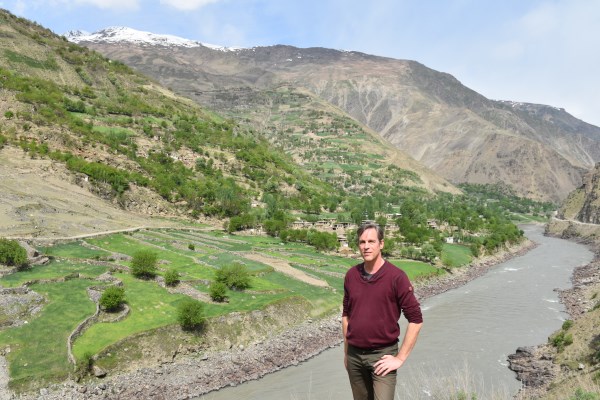
Tajik-Afghan border
As a Canadian traveller, how do people react when they find out your nationality? Do you believe that your country of origin has influenced the way you see the world?
Although I grew up in the US, I always disliked the parochial mentality and unexamined “number one” attitude that pervades American society. My greatest annoyance when travelling was constantly being expected to explain US foreign policies with which I personally disagreed, or else being subjected to people’s ridiculous fantasies about what an untarnished paradise they imagined the US to be. When I finally managed to acquire Canadian citizenship, I renounced my former passport with relief. People’s reaction to meeting a Canadian tends to be one of bland indifference, and that suits me fine.
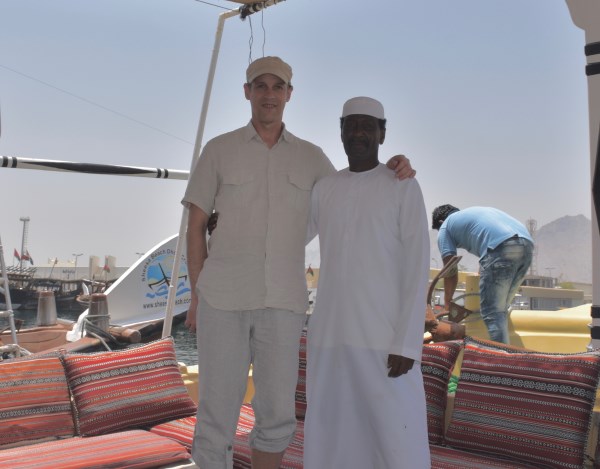
Dibba, Oman
Which countries beyond the Middle East have surprised you and why?
Well, I suppose India is the world’s most endlessly surprising country, probably because there is not just one India but countless different ones and they are each so unique. Considering that the place is only three times the size of France there is an unbelievable diversity of human realities there; it is a world of worlds. It would take many lifetimes to even begin to get a handle on them all, which I suppose makes an appealing case for believing in reincarnation.
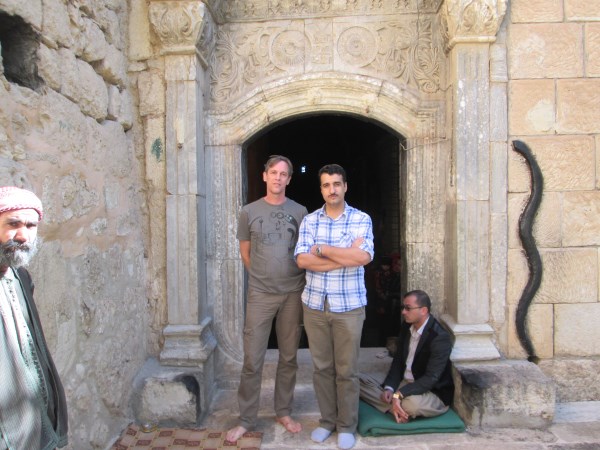
Yezidi shrine, Iraqi Kurdistan
You are a famous academic with many publications. How do you manage to combine your professional obligations with your love for travel? And what is your preferred style of travel?
I am very lucky to have found a profession which allows me four months of freedom every year. This time is meant to be used for research, and our entrance into local culture is often facilitated through academic contacts. There are also international conferences and such which can serve as springboards for trip extensions into nearby areas. Last year I was invited to give a lecture in Mauritius; we had a week there all expenses paid, then continued on to Réunion, Madagascar, and South Africa on our own. The lecture invitation was a catalyst for us to see some places we hadn’t been to previously.
Of course when I was young I had no money and did most of my travel on a shoestring budget. During the early 1980s I hitchhiked to every country in Europe except Albania (plus Morocco and Turkey), staying with people I met on the road or even sleeping in public parks, the metro, whatever. The worst place I ever stayed was in a truck stop along the Karakorum highway in Pakistan in 1987; a sleepless night on a broken charpoy with zero privacy and people getting up at five am loudly clearing their sinuses. Most of my travels have been solo by necessity rather than preference, since I have always had more free time than anyone around me and a higher tolerance for discomfort. My wife is a traveller as well but she likes her comforts, so even now I sometimes travel alone if it is under conditions she wouldn’t enjoy.

Nosy Be, Madagascar
Do you plan on completing all the countries of the world?
That has never been my goal and I don’t expect it will happen. There are a lot of things I want to experience, and a lot of things I don’t. A few years ago I spent a day with a well-known American television reporter in southeastern Turkey during the siege of Kobani across the border – he had recently escaped after being kidnapped in Syria just a few kilometres away, where his entire local crew had been executed one at a time by their captors while he lay tied up and blindfolded on the ground nearby listening to the horror unfold. I don’t wish to have experiences like that.
I very much would like to visit Afghanistan, however. As an Iranologist I have long been frustrated not to have been there, since it is one of the Persian-speaking countries and I have often written about its history. I had hoped to go there this year, but the Afghan embassy in Ottawa refused me a visa. I was recently in Central Asia doing research for a book I am writing on the history of the Tajiks. I spent a grueling fourteen-hour trip in a jeep bumping along the Pamir Highway over six hundred kilometres beside the Panj River which forms the border with Afghanistan. In places the river is only a few metres wide, and mostly unguarded. I was dissuaded by my travel companions from trying to wade across, but we spent the day waving and shouting at Afghans on the other side, farmers plowing their fields and kids playing soccer. We arrived on the Tajik side of Ishkashim village at exactly the same time the Taliban were moving in on the Afghan side – we could hear them shooting people. So it may be a while yet before I actually set foot in Afghanistan.
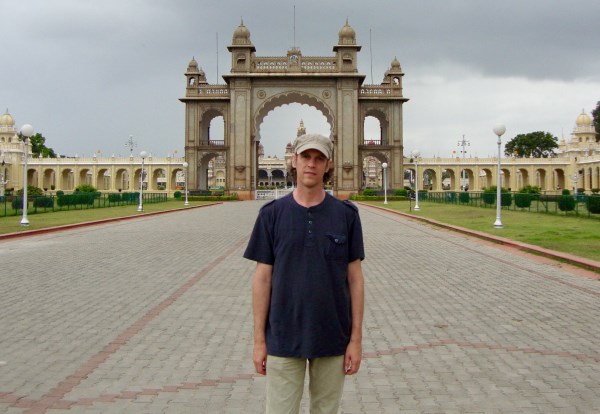
Mysore, India
Do you believe the world is becoming more or less difficult to travel around? And in terms of safety, do you believe it is and it will be safer or less safe than it was?
Travel is much easier now than when I was in my late teens and twenties. Pretty much anybody now can go pretty much anywhere. It is increasingly unusual to arrive in a place and experience the feeling that you are some kind of trailblazer. We didn’t use to worry about getting kidnapped and beheaded, though.
Many of the ‘difficult’ countries to visit now are in the Middle East – Libya, Syria, Yemen, all mired in conflict. Given your expertise, how do you think these conflicts will play out in the near to mid-term future? Do you ultimately think travellers will be able to explore these fascinating places again within a reasonable time frame?
Sadly I don’t see conflicts in the Middle East going away anytime soon. They are usually blamed on the locals – tribalist mentalities, age-old animosities, etc. – but I think it is more due to the fact that certain powerful entities are profiting greatly from this endless chaos and are making sure that it continues. I wouldn’t recommend visiting the three countries you just mentioned, for the time being at least.
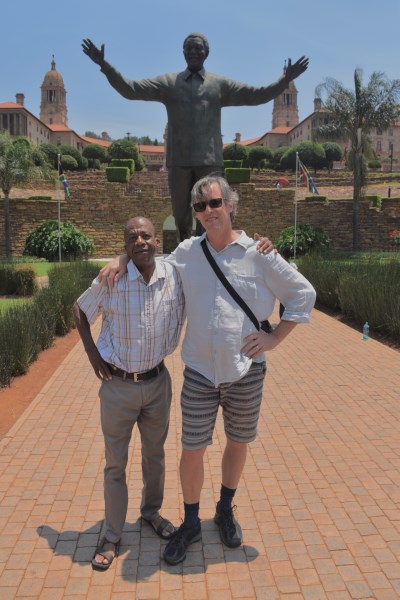
Pretoria, South Africa
So what are your travel plans for the near future?
My wife and I have booked a trip to Antarctica for next year. We love the polar regions, and have been to Greenland twice, also Baffin Island. Since we have to transit through Chile, we will be tacking on a trip to Easter Island afterwards. My wife, who grew up in Iran, loved reading the Persian translation of Thor Heyerdahl’s Kon-Tiki as a teenager and has dreamed of going there ever since.
Finally the question we always ask – if you could invite four people to dinner from any time in human history, who would you invite and why?
The first would be Sir Richard Francis Burton, the Victorian explorer and Orientalist who had to self-publish his unexpurgated translation of the Thousand and One Nights because English publishers found it unacceptably racy. He was the original “participant-observer”, a brilliant scholar and linguist, and an unrivalled explorer even if he was wrong about the sources of the Nile. I would also invite two Chinese travelers, Zhang Qian from the 2nd century BCE and Xuanzang from the 7th CE, to hear the ways in which the Silk Road experience evolved during the period from the Han to the Tang dynasties. Then, for comic relief, I would invite the British travel writer Eric Newby, author of Slowly Down the Ganges and A Short Walk in the Hindu Kush which are the kind of books I would have liked to have written myself if only I had the talent and wit.

Panama City
The photos in this interview are from Richard’s personal collection and we thank him for sharing them with us at NomadMania!
